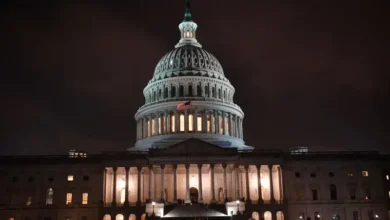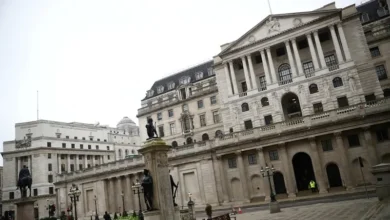Julian Assange timeline: A criminal or a hero?

Julian Assange, the founder of WikiLeaks, has been set free after fighting a long-running legal battle against extradition to the United States, where he could have been jailed for life on espionage charges.
Here are some key events and details in his life to date:
July 1971 – Assange is born in Townsville, Australia, to parents involved in theatre. As a teenager, he gains a reputation as a computer programmer.
1995 – Assange is fined for computer hacking but avoids prison on condition he does not offend again.
2006 – Founds WikiLeaks, creating an internet-based “dead letter drop” for leakers of classified or sensitive information.
April 2010 – WikiLeaks releases leaked video showing a US military helicopter gunning down 11 civilians, including two journalists, during the Iraq war. The Apache crew then fire on a van that tries to rescue the injured. The footage gave the world a glimpse into how the United States was conducting its war, triggering a media storm.
February 2011 – London’s Westminster Magistrates Court orders Assange’s extradition to Sweden. He appeals.
June 2012 – The British Supreme Court rejects Assange’s final appeal and five days later he takes refuge in Ecuador’s embassy in London and seeks political asylum, which Ecuador grants in August 2012. The asylum status allows him to stay legally in the embassy — and in theory, to live in Ecuador.
July 2014 – Assange loses his bid to have the Swedish arrest warrant issued against him cancelled. A judge in Stockholm upholds the warrant alleging sexual offences against two women.
August 2015 – Swedish prosecutors drop investigations into some allegations against Assange because of the statute of limitations; an investigation into a rape allegation remains active.
June 2019 – The US Department of Justice formally asks the UK to extradite Assange to the US to face charges that he conspired to hack US government computers and violated an espionage law.
November 2019 – Swedish prosecutors drop their rape investigation, saying the evidence is not strong enough to bring charges, in part because of the passage of time.
February 2020 – A London court begins the first part of extradition hearings which are adjourned after a week. The hearings are supposed to resume in May but are delayed until September because of the COVID-19 pandemic.
January 2021 – At the Old Bailey in London, Judge Vanessa Baraitser concludes it would be “oppressive” to extradite him to the US because of his frail mental health, saying there was a real risk he would take his own life. However, Judge Baraitser denies Assange bail at a London court, saying he is a flight risk.
July 2021 – The High Court grants the US government permission to appeal the lower court’s ruling blocking Assange’s extradition.
July 2021 – Ecuador formally revokes the Australian’s citizenship after Ecuadorian authorities said the letter supporting his naturalisation had multiple inconsistencies, different signatures, the possible alteration of documents and unpaid fees, among other issues.
December 2021 – The High Court in the UK rules that the US assurances about Assange’s detention are enough to guarantee he would be treated humanely.
March 2022 – Britain’s Supreme Court refuses to grant Assange permission to appeal against his extradition.
June 2022 – Britain’s government orders the extradition of Assange to the US. Assange appeals.










